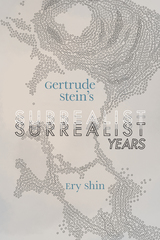Blue: A History of Postpartum Depression in America
University of Chicago Press, 2024
eISBN: 978-0-226-83580-8 | Cloth: 978-0-226-83579-2
See other books on: 20th Century | America | Blue | Psychology | Women
See other titles from University of Chicago Press
eISBN: 978-0-226-83580-8 | Cloth: 978-0-226-83579-2
ABOUT THIS BOOK | AUTHOR BIOGRAPHY | REVIEWS | TOC
ABOUT THIS BOOK
A powerful look at the changing cultural understanding of postpartum depression in America.
“If you begin to feel at all depressed,” the famous pediatrician Dr. Benjamin Spock advised new mothers, “go to a movie, or to the beauty parlor, or to get yourself a new hat or dress.” Such was the medical expertise on postpartum depression in the postwar United States. For much of the twentieth century, postpartum depression—and, more broadly, postpartum mental illness—had not been considered a fit subject for public discussion or even psychological discourse, let alone political action. But that was about to change.
In Blue: A History of Postpartum Depression in America, Rachel Louise Moran explores the history of the naming and mainstreaming of postpartum depression. The push to define and diagnose postpartum is owed in part to the feminist women’s health movement, but it emerged as an independent grassroots force. Coalitions of maverick psychiatrists, psychologists, and women who themselves had survived substantial postpartum distress fought to legitimize and normalize women’s experiences. They emphasized that postpartum depression is an objective and real illness, even as it became politicized alongside other fraught medical and political battles over women’s health.
Based on insightful oral histories and in-depth archival research, Blue reveals a secret history of American motherhood, women’s political activism, and the rise of postpartum depression advocacy amid an often censorious conservative culture. By breaking new ground with the first book-length history of postpartum mental illness in the 20th century, Moran brings mothers’ battles with postpartum depression out of the shadows and into the light.
“If you begin to feel at all depressed,” the famous pediatrician Dr. Benjamin Spock advised new mothers, “go to a movie, or to the beauty parlor, or to get yourself a new hat or dress.” Such was the medical expertise on postpartum depression in the postwar United States. For much of the twentieth century, postpartum depression—and, more broadly, postpartum mental illness—had not been considered a fit subject for public discussion or even psychological discourse, let alone political action. But that was about to change.
In Blue: A History of Postpartum Depression in America, Rachel Louise Moran explores the history of the naming and mainstreaming of postpartum depression. The push to define and diagnose postpartum is owed in part to the feminist women’s health movement, but it emerged as an independent grassroots force. Coalitions of maverick psychiatrists, psychologists, and women who themselves had survived substantial postpartum distress fought to legitimize and normalize women’s experiences. They emphasized that postpartum depression is an objective and real illness, even as it became politicized alongside other fraught medical and political battles over women’s health.
Based on insightful oral histories and in-depth archival research, Blue reveals a secret history of American motherhood, women’s political activism, and the rise of postpartum depression advocacy amid an often censorious conservative culture. By breaking new ground with the first book-length history of postpartum mental illness in the 20th century, Moran brings mothers’ battles with postpartum depression out of the shadows and into the light.
See other books on: 20th Century | America | Blue | Psychology | Women
See other titles from University of Chicago Press












